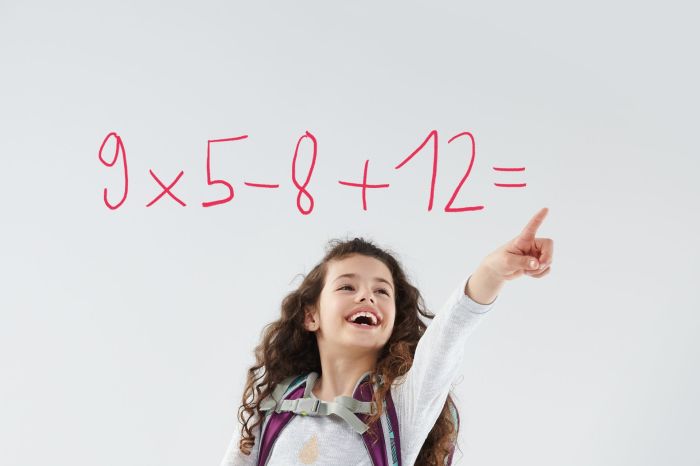Our topics:
How your child learns the foreign language of mathematics

Mathematics is a word that can strike anxiety into many children – and adults too – just at the thought of the subject. This is a pity, not only because working with numbers can be incredibly exciting, but also because the kids will not be able to avoid the subject at school where it will feature heavily on the timetable.
Many kids find mathematics easy from the outset. Some whose strengths are in other areas find it difficult at the beginning, so it can help if you practice together at home. It mustn't always be rigorous and formal, however, but it can be really enjoyable – and it should be fun because children learn best when something is fun (and it doesn't harm for the adults to enjoy it too).
This helps to foster an early understanding of numbers and to develop an awareness of mathematical associations in the preschool years.
Early understanding of numbers
From toddlerhood onwards, kids understand what numbers are and have a rough grasp of quantities, shapes, sizes, weight, sequence, and relations, etc., which have underlying mathematical structures. Studies show that the early acquisition of rudimentary mathematics is a key factor in performing well in the subject later on at school. It is important to play number games and to adopt a light-hearted and age-appropriate approach. As a general rule, parents do this instinctively in everyday situations. Children learn to tell the time, look for house numbers, use cellphones and remote controls, practicing numbers quite naturally in these and many other day-to-day activities.
Little number games
If you want to introduce your kids systematically to mathematics, however, there are various ways of going about it. When eating cherries, for example, simply asking how many cherries are on the plate will stimulate their sense of number. You could also ask how many cherries they will have left if they eat one.
The kids can learn when out shopping for groceries as well. If they are sent out to buy bread rolls, they can check the change they are given. And there is another bonus in that these little jobs make them more independent and they can be proud of their success.
Do you like the hands-on approach? That's super! There are lots of board games and card games where you need to add up, such as "Halli Galli", or "Kniffel" for older kids which is like Yahtzee. These games are fun for the whole family and get everyone counting without noticing.
Then there are also lots of number puzzles like this one:
_A farmer has to cross a river. He has a wolf, a sheep and a lettuce with him. The boat is only big enough to carry him and either the wolf, the sheep or the lettuce. But he cannot leave the sheep alone with the lettuce because it would eat it. Nor can he leave the sheep with the wolf. How many times does he need to cross the river?
_The whole family can puzzle over the answer together at the meal table – great fun!
There are other ideas and ways in which you can interest your kids in numbers in the books in our list of book recommendations.
Ready... steady... explore the world of numbers!
